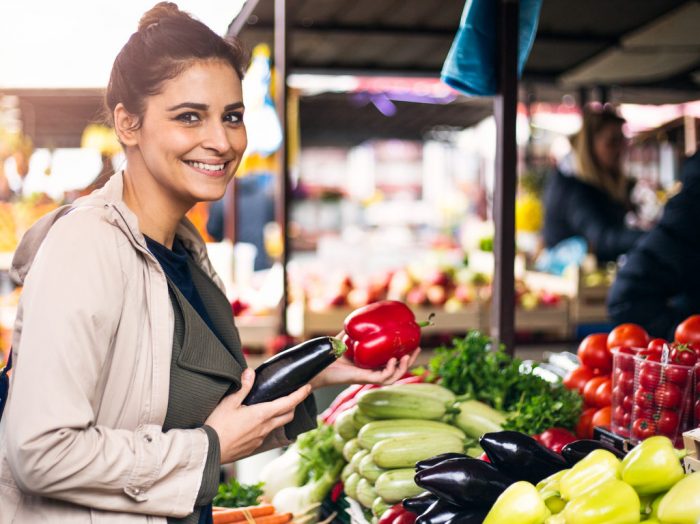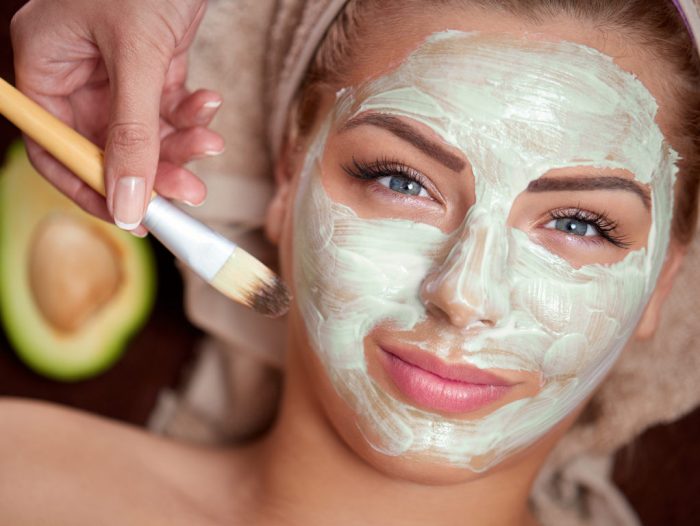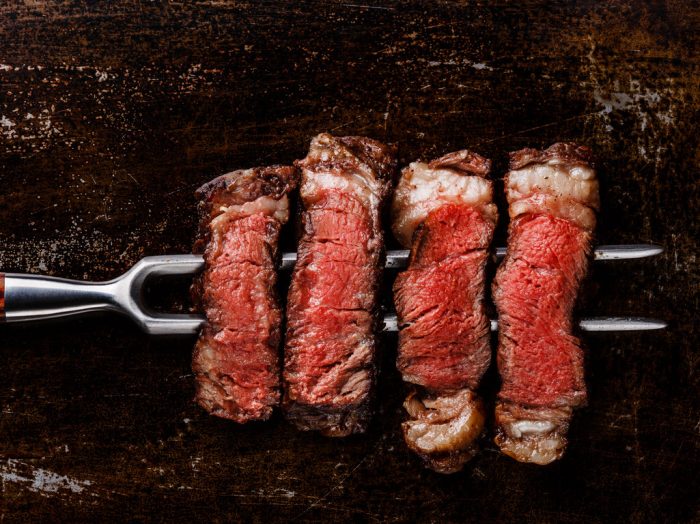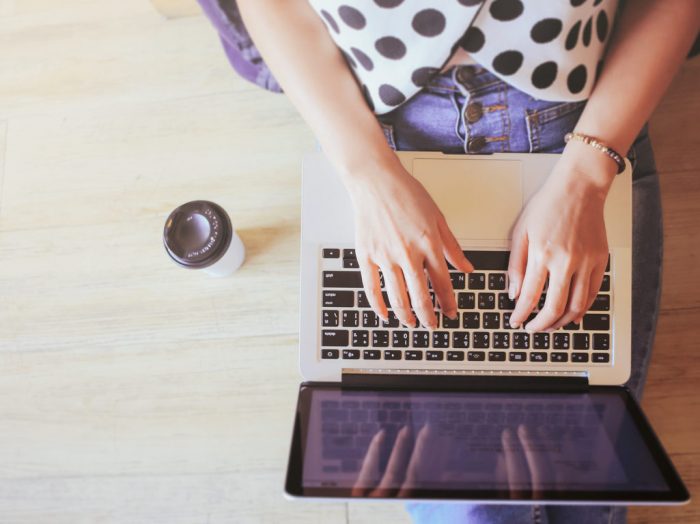You should know how long fresh fruit and vegetables last, so you can first consume the most perishable ones. Keeping them for a longer time also depends on your storage technique.
In the springtime, I get excited about the abundance of fresh fruit and veggies I see at the market. I like to go to the marketplace on Saturday morning, because it’s relaxing to walk between stands of colorful and various types of vegetables (and maybe flowers!), to smell a big bunch of parsley or dill, to feel the texture of a fresh apple, or to chat with a nice fruit seller who invites you to taste their cherries. After each visit to the market, I come back home thinking about the beauty of life and generosity of nature. I have a big smile on my face and a bag full of everything!
When I get home, I’m so happy with the foods I’ve bought. But my joy is overshadowed by the worries that I can’t eat everything in a short period of time and some fruit and veggies will go bad soon. So I’ve started researching how long fresh fruit and vegetables last, to preserve mine for a longer period of time. Here are some things I found out. I follow these small rules all the time, so I can enjoy all of the goodies I buy.
How long fresh fruit and vegetables last
3 days
During the first three days since you went to the market, you should eat your bananas (if they’re ripe), fresh raspberries, blackberries, strawberries, blueberries, cherries, figs, ripe tomatoes, and avocado. Don’t forget that you should only rinse berries right before you use them.
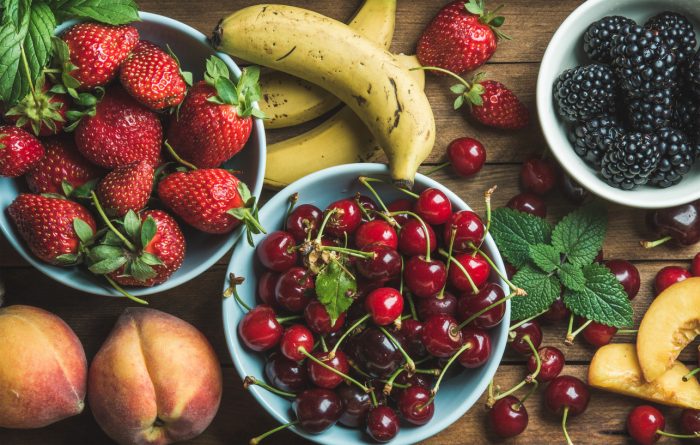
5 days
When you’re aware of how long fresh fruit and vegetables last, you can plan your meals, and that’s a good and healthy habit. So, after you eat your 3-day lasting fresh foods, you only have two more days to eat ripe mangos, melons, green grapes, pineapple, avocado that is not completely ripen, pears, plums, rhubarb, asparagus, summer squash, green beans, lettuce, spinach, green spring garlic, spring onion, and leeks.
7 days
If you buy food for a week without knowing how long do fresh fruit and vegetables last, you may end up with nothing to eat at the end of the week. So, use those last two days to eat your pomegranates, papaya, peaches, apricots, kiwi, mushrooms, cucumber, radishes, eggplants, and new potatoes (stored in the fridge).
Some foods last even longer
Some fruit and veggies can last on your kitchen counter more than a week. Apples, Brussels sprouts, broccoli, celery, artichokes, zucchini, cauliflower, peas, peppers, onions, shallots, parsnips, citrus fruits, watermelon, beets, turnip, carrots, red and green cabbage, potatoes, and sweet potatoes (if you store them in a cool dark place) will keep for more than a week.
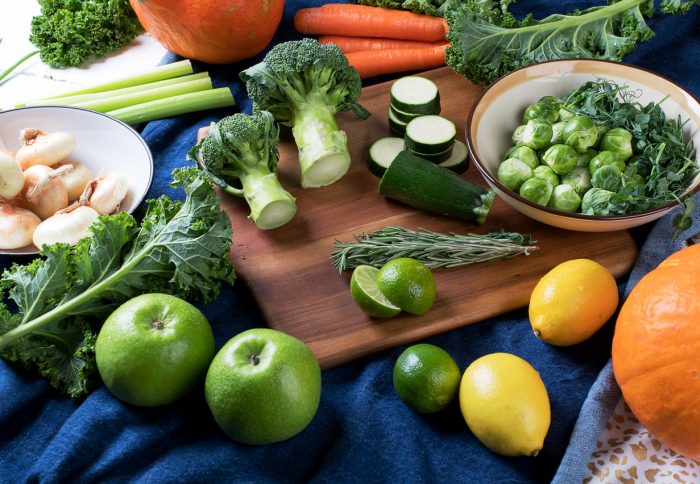
How to store them to benefit to the max
Even if you learned how long fresh fruit and vegetables last, you should also know storage conditions are important. To maximize the shelf life of your produce, take the time to store everything properly before you put it away.
Washing and chopping your vegetables will reduce their life. Still, you can cut the leafy ends of your radishes, carrots, or beets and nothing bad will happen to them – just leave a 0.4-inch/1 cm of stems untouched to keep the vegetables from drying out. Also, keep in mind that you shouldn’t store fruits and veggies together because fruits can prematurely ripen the nearby vegetables.
When you store your veggies in a bag – and you should do this – make sure you puncture some holes in it to allow for good air flow. The vegetables you put in the fridge (and this means everything except for potatoes, onion, and other things that should be kept in the pantry) must be packed loosely.
Remember that avocado, mango, and tomatoes will continue to ripen if you leave them on a countertop. On the other hand, grapes, citrus fruit, and berries will deteriorate if you don’t shelter them in the refrigerator. Bananas ripen very quickly – that’s why you should eat them during the first 3 days of buying – and, if you store them near any other fruits, they will speed up their ripening too. So store them alone!

